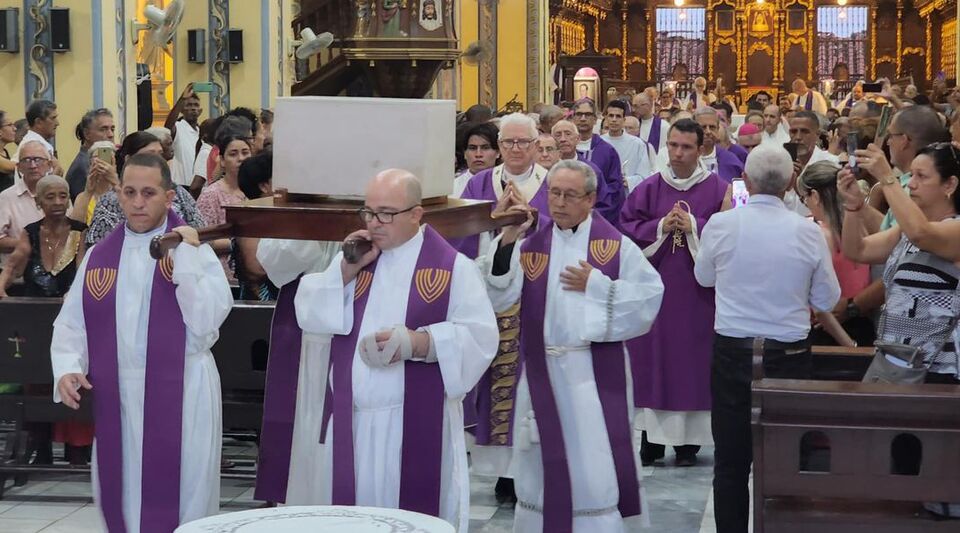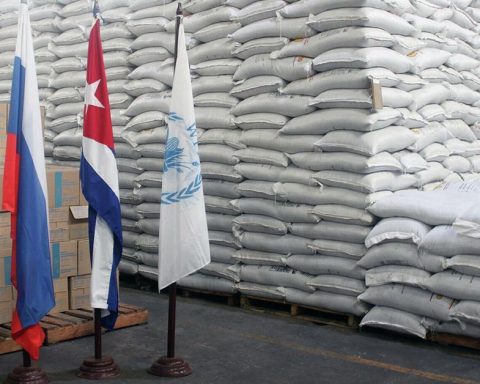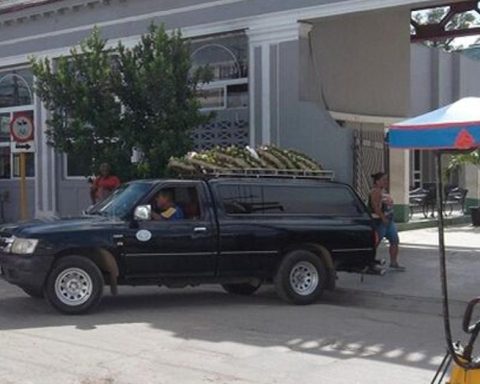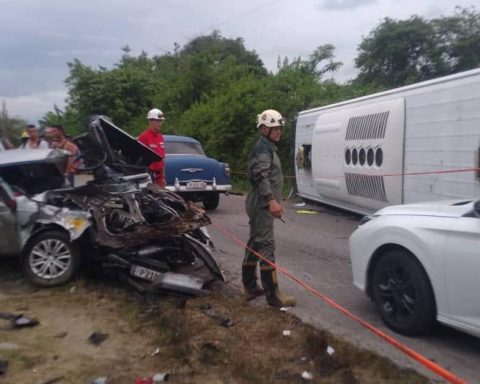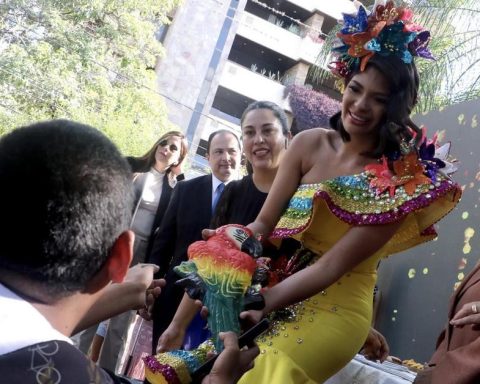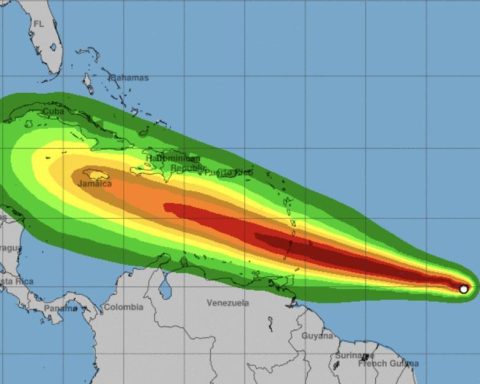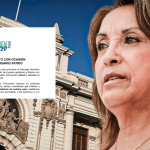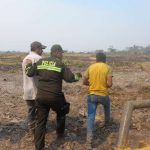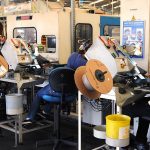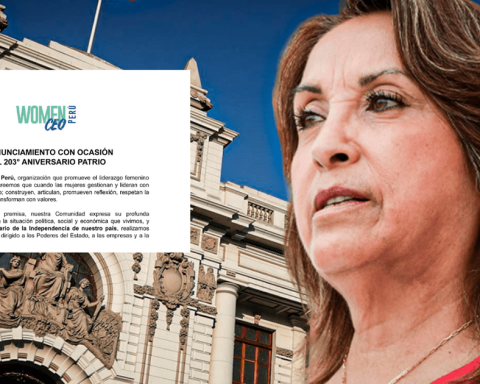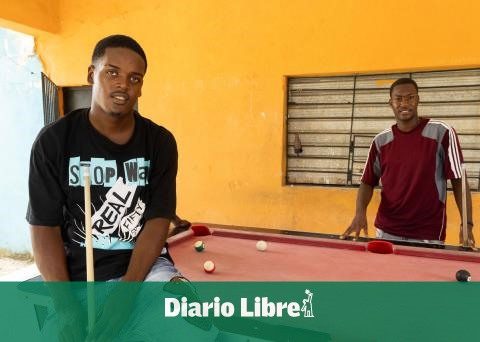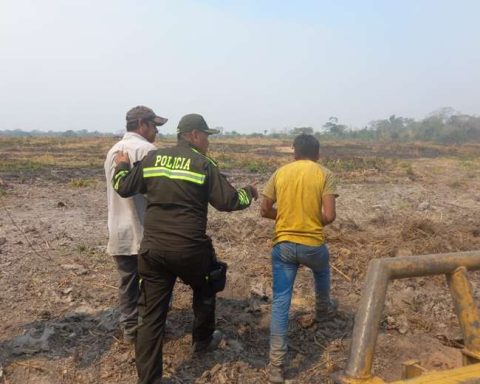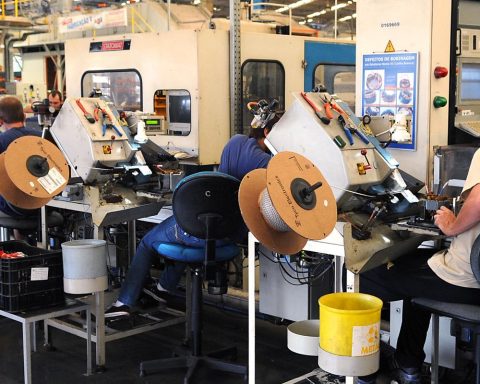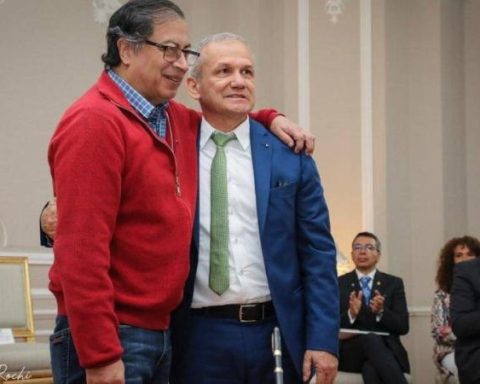To the reporter Francisco Herodes Díaz Echemendía, collaborator of 14ymedio, he was prohibited from entering the cathedral of Santiago de Cuba to attend the funeral mass for Pedro Claro Meurice Estiú, who was archbishop of that city. The remains of the priest, who died in 2011 in Miami, United States, were reinterred this Wednesday in the parish in a ceremony that brought together hundreds of people.
“You cannot enter because it is behind closed doors and by invitation, you need a credential,” was the response that two political police officers gave Díaz Echemendía when he tried to approach the church. A strong police device, with agents in uniform and others in civilian clothes, surrounded the temple, although the invitation issued by the religious authorities invited “lay faithful, religious men and women, priests, people of Santiago de Cuba.”
The two agents, who called themselves Noel and Camilo, told the reporter to return home and not insist on accessing the cathedral. When Díaz Echemendía retraced his steps, in the direction of his house, another police officer pressured him not to walk through downtown streets. “I felt very harassed and threatened,” he tells this newspaper.
Díaz Echemendía went back to the cathedral and was able to talk with Archbishop Dionisio Guillermo García Ibáñez, who was surprised by what happened
This Thursday, Díaz Echemendía went back to the cathedral and was able to talk with Archbishop Dionisio Guillermo García Ibáñez, who was surprised by what happened and assured that no other person had been required to show a credential to access the church that afternoon. this Wednesday.
After the mass, the remains of Meurice Estiú, born in 1932 in the eastern town of San Luis and nicknamed “the lion of the East”, were placed in an open cavity in the ground of the Santa Basílica Metropolitana Iglesia Catedral de Santiago de Cuba and covered with a tombstone that reads that he was the fourteenth archbishop of the city. The ceremony was broadcast on social media.
After Meurice’s death in 2011, his remains were transferred from Miami and buried in the Santa Efigenia cemetery in Santiago de Cuba. That funeral was surrounded by a strong police operation and attended by numerous members of the opposition organization Patriotic Union of Cuba, together with its leader José Daniel Ferrer, who is currently in prison.
Many moments and anecdotes are remembered about Meurice Estiú, but none surpasses the mark left by his words on the morning of January 24, 1998 in the Plaza de la Revolución in Santiago before thousands of people. There he spoke before Pope John Paul II, visiting the Island, and the then Minister of the Armed Forces, Raúl Castro.
With that address, Meurice Estiú established himself as the most critical voice with the regime at that time within the Cuban Catholic Church.
“I also present to you a growing number of Cubans who have confused the homeland with a party, the nation with the historical process that we have experienced in recent decades, and culture with an ideology,” Meurice Estiú assured before a Castro who did not stop to show on his face the annoyance at the words of the archbishop, then 66 years old.
To round things off, the priest also alluded to the exodus: “They are Cubans who, by rejecting everything at once, without discerning, feel uprooted, reject what is here and overvalue everything foreign. Some consider this one of the deepest causes of exile internal and external”.
With that address, Meurice Estiú established himself as the most critical voice of the regime at that time within the Cuban Catholic Church, in addition to honoring his career since he was ordained in 1955 and studied canon law at the Pontifical Gregorian University in Rome. Upon his return, he was appointed vice chancellor and secretary of Archbishop Enrique Pérez Serantes, who saved the life of Fidel Castro after his failure in the assault on the Moncada barracks in 1953.
In 1967, Meurice Estiú was appointed Auxiliary Bishop of Santiago de Cuba by Pope Paul VI and, after Serantes’ death, he was appointed apostolic administrator of the diocese of the diocese.
________________________
Collaborate with our work:
The team of 14ymedio He is committed to doing serious journalism that reflects the reality of deep Cuba. Thank you for accompanying us on this long road. We invite you to continue supporting us, but this time becoming a member of our newspaper. Together we can continue transforming journalism in Cuba.
